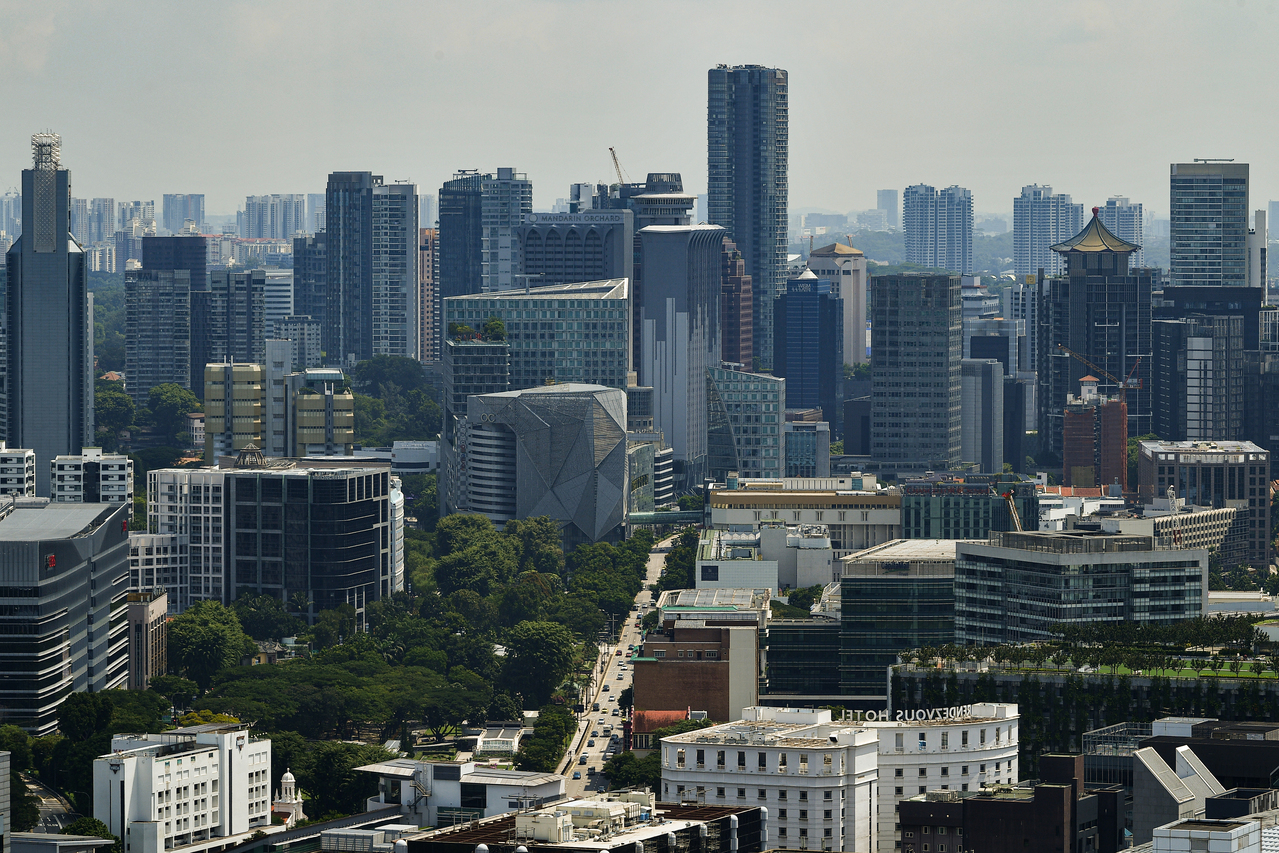Strata subdivision of commercial properties in central area no longer allowed: URA
Sign up now: Get ST's newsletters delivered to your inbox

The new rule also applies to developments near key landmarks of national significance.
PHOTO: ST FILE
Follow topic:
SINGAPORE - A new regulation has been introduced to ensure future commercial and mixed-use properties with a commercial component at prominent areas and routes in Singapore's central area are well managed and maintained under a principal ownership.
As at Tuesday (March 15), the Urban Redevelopment Authority (URA) no longer allows the strata subdivision of the commercial component in properties located in the Central Business District (CBD) and Orchard Road corridors, among other designated areas, into individual units.
This comes as existing strata subdivided developments, due to their fragmented ownership, tend to face challenges in maintenance and upkeep, the URA said.
"For example, they may have difficulties in obtaining consensus to regularly maintain and/or upgrade the building, which can result in deteriorating physical condition, and in curating a good tenant mix," it said.
The new rule applies to developments near key landmarks of national significance, as well as the Orchard Road corridor - comprising Orchard Road, Tanglin Road and Scotts Road - and the CBD corridor of Shenton Way, Robinson Road, Anson Road, Raffles Quay, Raffles Place Park and along the Singapore River.
The Straits Times has asked URA how many buildings will be affected under the new regulation.
This restriction also applies to redevelopment proposals under the CBD Incentive and Strategic Development Incentive (SDI) schemes.
URA is unable to specify the number of buildings that will be affected by the restrictions. “For existing strata subdivided sites, the restrictions apply only if and when the properties are redeveloped,” it said.
Colliers called the new regulation timely as it comes after several developments were slated for redevelopment under the CBD Incentive and SDI schemes and will ensure that these future projects are well-managed and maintained.
"This is a welcome development as strata subdivided developments tend to face challenges in their maintenance and upkeep... Given headwinds such as e-commerce and travel restrictions, strata malls may be less resilient, as collective action is often needed to introduce new concepts, market and position the malls. As a result, they fail to draw crowds and suffer from low footfall," Colliers said.
Therefore, this restriction will prevent owners from trying to maximise fixed rents from subdivided units with little sharing of business operational risks.
"Under a single ownership, there will be stronger alignment of interests in terms of building management, incorporating ESG (environmental, social and governance) considerations, as well as choice of tenant mix. As a result, it will help to preserve the positioning and value of the asset in the long run," the firm said.
Mr Wong Xian Yang, Cushman and Wakefield's head of research in Singapore, noted that the restriction would be "slightly negative for investment prospects of affected developments, as it removes a potential divestment route for developers and investors".
"However, the restriction would also limit future supply and existing strata units, especially office units, (which) would become more valuable due to limited future supply," he said.
"In all, we don't anticipate a huge impact to market sentiment. Most investors acquire Singapore commercial properties for their stable income flows and would have a mid- to long-term investment horizon."
JLL's head of research and consultancy for Singapore, Ms Tay Huey Ying, said the restriction is timely as redevelopment activity is expected to gain momentum.
"The (Covid-19) pandemic and increasing emphasis on workplace sustainability are also expected to accelerate redevelopment of ageing commercial developments," she said.
ERA Realty head of research and consultancy Nicholas Mak noted that the regulation could result in small investors and shop operators having fewer opportunities to invest in commercial strata units in these locations as more of these commercial properties undergo redevelopment.
Furthermore, the new restriction could affect collective sales and their asking prices, he added.
"This is because the modus operandi of some developers is to redevelop a building or land into strata units for sale. This method can provide a relatively high rate of financial return within a given time compared with holding the property for rental income.
"Therefore, the new restriction could lessen their interest in such properties in the affected locations," he said.


